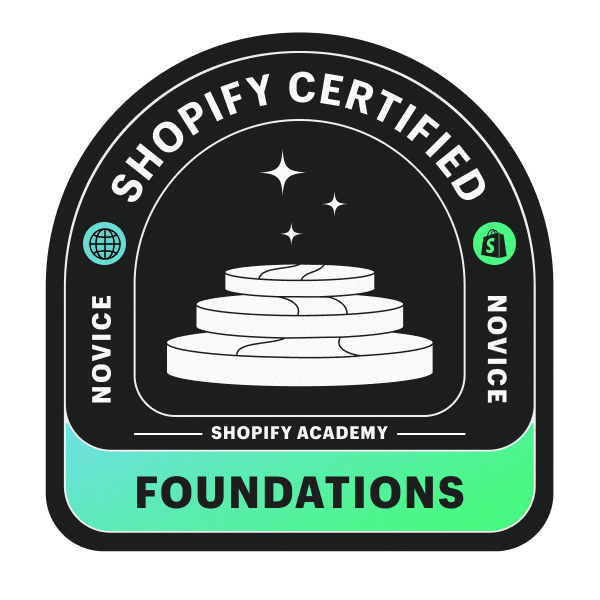If you’re a business owner selling to other businesses, B2B ecommerce can help you scale faster, sell smarter, and serve better—entirely online.
What Is B2B Ecommerce?
B2B ecommerce (Business-to-Business ecommerce) is the process where one business sells products or services to another business through an online platform.
Unlike B2C (Business-to-Consumer), which sells to individuals, B2B focuses on wholesale buyers, retailers, or organizations—such as schools, resellers, or distributors.
📌 Main goal: Reach more customers while reducing costs, time, and manual work.
How Does B2B Ecommerce Work?
B2B ecommerce works by allowing businesses to place and manage orders digitally, instead of through calls, emails, or in-person meetings.
Examples include:
-
A manufacturer selling parts to a factory
-
A wholesaler selling bulk products to a retailer
-
A distributor managing orders for different brands
All of this happens online which is often through a website or Shopify store with custom pricing, login portals, and digital catalogs.
Powerful Benefits of B2B Ecommerce for Your Business
1. Boosts Brand Visibility
Instead of relying only on your own marketing, B2B lets your retail and wholesale partners help promote your brand. When your products show up in stores or other online shops, more customers discover you—without spending extra on ads.
2. Lower Marketing Spend
B2B partners help sell your products. You don’t need to run as many ads or pour money into campaigns—your resellers do part of the marketing for you, naturally cutting costs.
3. Cheaper Customer Acquisition
With B2B, one deal can bring in large, recurring orders. You invest less in attracting new customers, yet earn more per relationship. A strong pitch or partnership can lead to high-volume, long-term buyers.
4. Bigger Orders, More Often
Business buyers usually order in bulk and reorder regularly. Unlike individual shoppers who buy one item, a retailer might buy 20 or 200 at once—and come back monthly. That means higher order value and steadier income.
5. Loyal Customers, Predictable Revenue
B2B customers tend to stick around. When a store or business trusts your brand, they’re more likely to reorder again and again. This loyalty brings in consistent revenue and helps you plan better.
6. Automated Sales = Saved Time
B2B ecommerce platforms like Shopify let you automate everything from orders to invoices. This cuts down manual work and errors, and gives your team more time to focus on growing the business.
7. Easier Global Reach
Want to sell internationally without handling logistics in every country? B2B lets you partner with local distributors or retailers who take care of shipping and promotion for their region.
8. Lower Operational Costs
Selling in bulk means fewer shipments, less packaging, and reduced handling costs. Plus, with features like self-serve portals and automated payments, you save on staffing and resources.
9. Personalized Buying Experience
B2B customers often expect unique prices, custom deals, or specific payment terms. With B2B ecommerce tools, you can tailor the buying experience to match each client’s needs—making them feel valued and understood.
10. Better Customer Support = Higher Retention
B2B buyers usually get more hands-on service. Think dedicated account managers, product guidance, and tailored support. This improves the customer experience and keeps buyers coming back.
11. Simplified Growth & Scaling
With Shopify, you can manage both B2B and B2C sales from one place. That means no need for two different systems. You control inventory, pricing, and customer data in one dashboard—making it much easier to scale your business.
Common B2B Ecommerce Models
Wholesale – Sell in bulk to retailers who resell your products.
Manufacturer – Sell directly to businesses using or reselling your parts/products.
Distributor – Handle delivery, storage, and logistics for brands.
B2B2C – Partner with another business to sell directly to consumers under your brand.
Wondering if B2B ecommerce fits your business? It’s ideal for:
-
Manufacturing (e.g., spare parts, tools)
-
Wholesale distribution (e.g., food, clothing, packaging)
-
Office supplies and equipment
-
Health and beauty products for salons or clinics
-
Printing, promotional, and corporate gift businesses
When to Start B2B Ecommerce?
You should consider B2B ecommerce if:
-
Your sales team spends too much time on manual orders
-
You want to serve more buyers with less cost
-
You need a centralized platform for pricing, inventory, and customer data
-
You want to future-proof your business
4 Stages of a B2B Ecommerce Business

Why Use Shopify for B2B Ecommerce?
B2B ecommerce offers a powerful way to attract new customers and boost your revenue. Whether you're launching an online store, optimizing inventory, or simplifying your operations, a B2B ecommerce solution can support your goals.
With Shopify, you also gain access to a robust support ecosystem and top-tier Shopify Agency Partners who can assist you throughout your entire journey.
Combined with features like a built-in wholesale channel for B2B sales, it's no surprise that merchants on Shopify are seeing an average growth of 120% year over year.
Even if you're not tech-savvy, Shopify makes B2B ecommerce easy to manage.
B2B ecommerce isn’t just a nice-to-have anymore — it’s a smart way to grow your business. It helps you cut costs, serve your customers better, and scale more efficiently.
So start simple, listen to your buyers, and use the right tools (like Shopify!) to build a strong foundation for long-term success.
Have a nice day!

